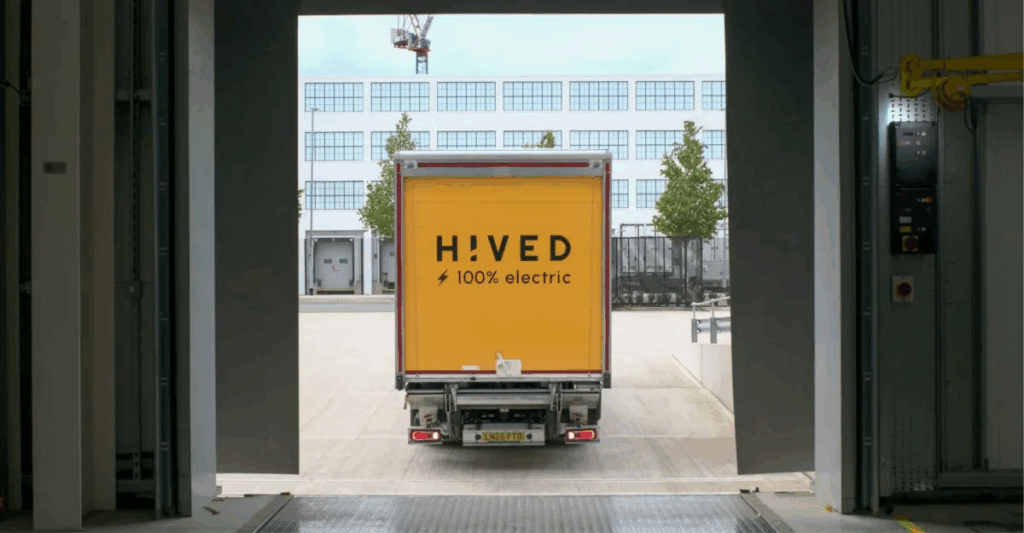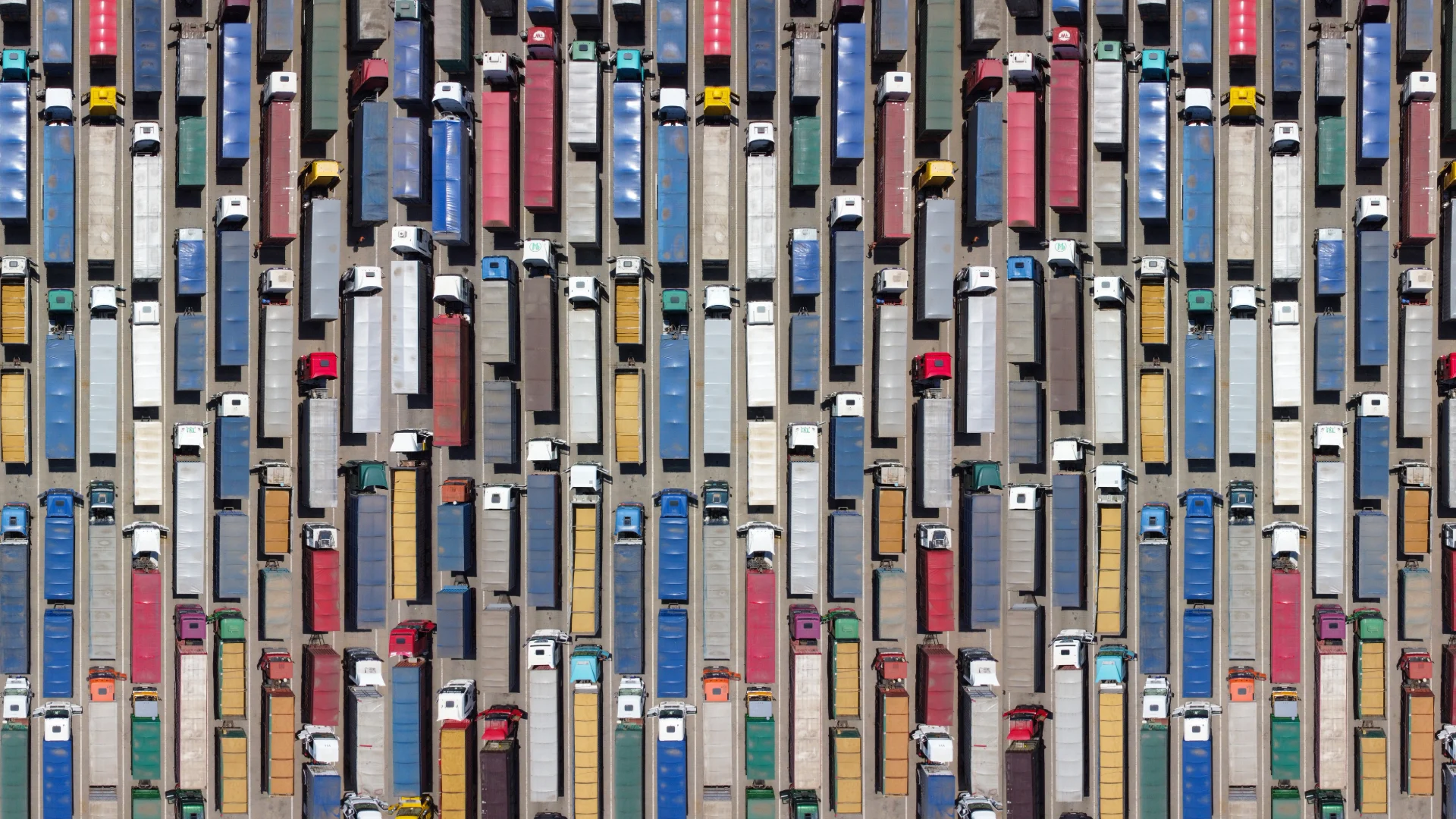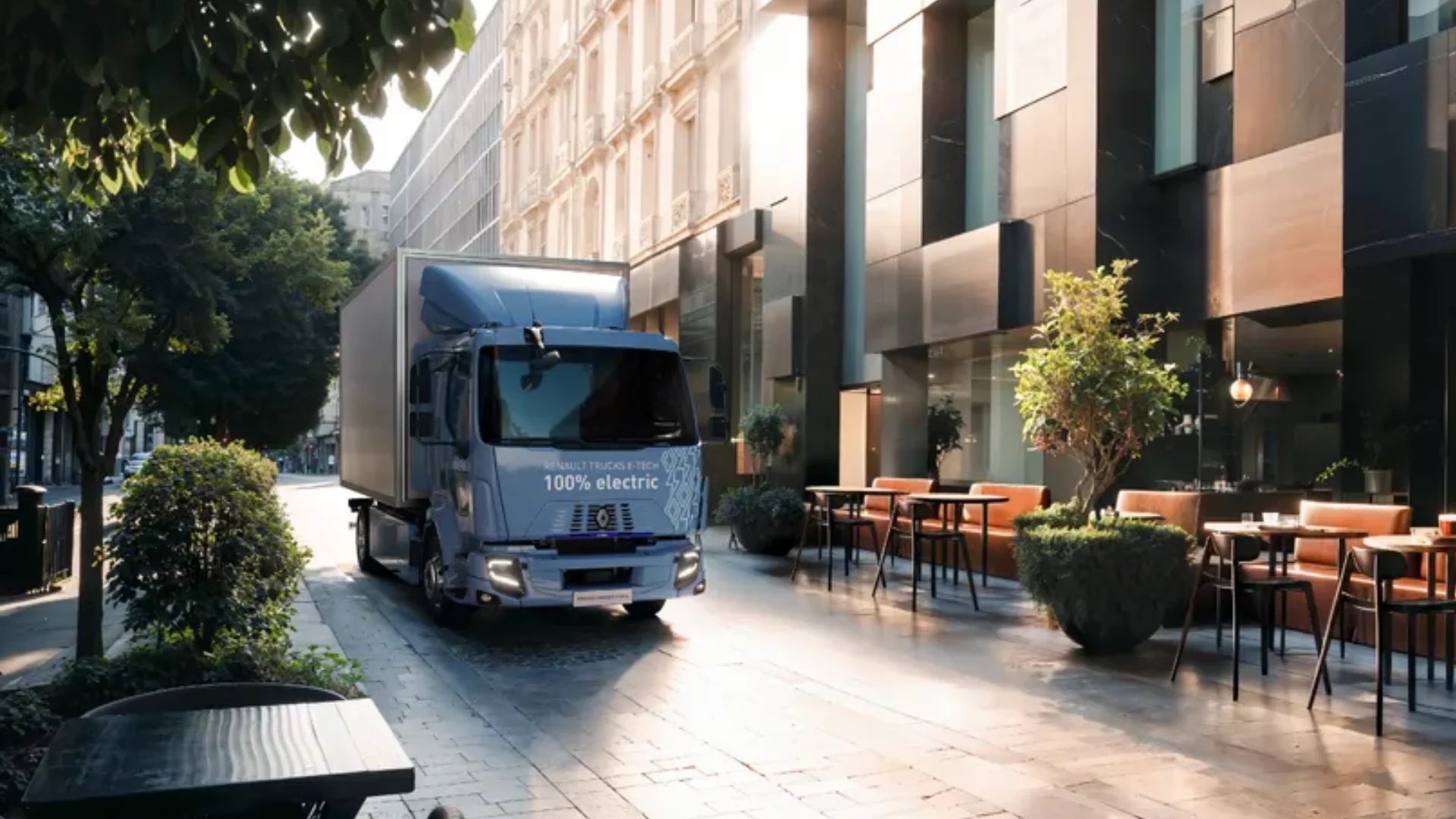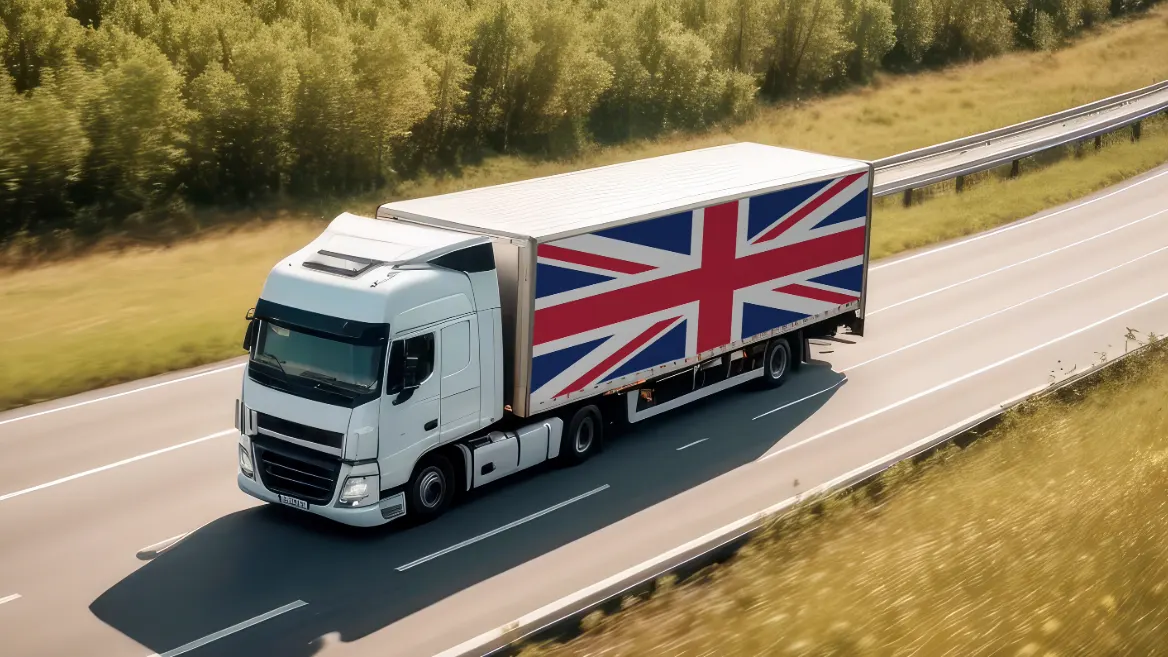Welcome to This Week in Freight, your go-to source for the latest haulage and road freight news and advice in the UK.
This week’s edition brings a big shake-up for UK hauliers. From October, the EU’s new Entry/Exit System will add biometric checks at Schengen borders — with Dover and Folkestone bracing for queues and delays. At the same time, TEG/HX has partnered with HIVED to give operators direct access to the UK’s first fully electric parcel delivery network, while bp pulse and Moto prepare to launch megawatt charging hubs on UK motorways from 2026.
Alongside these headlines, we’ve covered how AI is already saving fleets millions, new French toll rules for HGVs, and why hydrogen and battery innovation are reshaping the industry.
From border compliance to future-ready fleets, here’s everything you need to know this week.
🛂 EU biometric checks incoming for UK drivers

From October 2025, the EU’s new Entry/Exit System (EES) will replace passport stamps with biometric checks for UK drivers.
Fingerprints, photos and stricter rules mean longer queues at Dover and Folkestone, with delays expected until the system beds in.
For hauliers, that means rescheduling, contract updates and more communication with shippers to stay compliant and competitive.
→ Read our full Entry/Exit System guide here.
📦 The UK’s first fully electric parcel network

TEG & Haulage Exchange have partnered with HIVED to give logistics providers direct access to the UK’s first fully electric parcel delivery network — including 44-tonne HGVs.
With 76% emissions cuts and 99% on-time delivery, HIVED’s fleet is now integrated into TEG’s platform, offering carbon tracking, compliance checks and automated invoicing.
A big move for 3PLs under pressure to decarbonise and hit sustainability targets.
→ See how the partnership works.
⚡ Mega charging bays for hauliers

Motorways across the UK will soon host megawatt charging hubs for electric trucks, with BP Pulse and Moto starting at Lymm and Toddington in 2026.
Each site will have six pull-through bays, cutting downtime with ultra-fast charging compatible with CCS and MCS.
With plans for 300 bays by 2030, this marks a major step in making long-haul electrification practical for fleets, linking the UK to EU routes.
→ Find out where hubs are coming first.
Also worth a read
- ❄️ A “hockey puck” smart tracker has debuted in the US, promising to transform cold chains with real-time cargo-level visibility.
- 💷 Have you budgeted correctly for 2025 HGV road tax? Our complete guide explains VED bands, levy rates, exemptions and penalties.
- 🛣️ French motorway operators are introducing new truck toll discount rules from 1 October 2025, with capped savings of up to 13%.
- 💻 A UK haulage firm has saved nearly £900,000 a year after using AI to automate timesheets and optimise operations.
- 📑 Hauliers have been urged to stay focused on ICS2 customs changes, despite staggered EU rollouts creating confusion.
- 🚚 Covid-era trucking heroes have been described as “forgotten” by the Scottish shadow cabinet secretary for transport, with calls for better driver facilities across Scotland.
Movers & shakers
Here are this week’s big developments, with a focus on sustainability:
- 🚛 DAF Trucks have begun mass production of its fully electric XD and XF trucks, offering ranges of up to 500km with modular LFP batteries.
- ⚡ Wrightbus has unveiled its first repowered electric truck, costing less than half a new EV and promising to create 160 UK jobs over the next two years.
- ⛽ A new mobile hydrogen refuelling station will be deployed in Glasgow, supporting fleet trials with Russell Transport and saving 25,000t CO₂e annually.
- ⛰️ Daimler Truck has tested its GenH2 hydrogen prototypes in the Swiss Alps, completing 10,000km of trials ahead of 2026 customer rollouts.
- 🔋 Stellantis has developed a lighter, more efficient EV battery, cutting charging time by 15% and reducing weight by 40kg in its prototype Peugeot E-3008.




